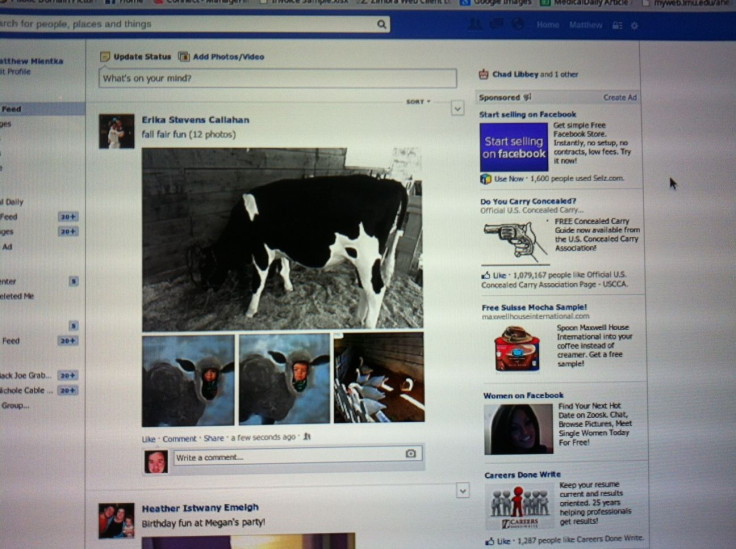Facebook And Social Media Activity Reflects Self-Esteem, Study Finds

The way someone uses social media may reflect not only intelligence and personality but deeply rooted feelings about the self. How a person uses facebook could reveal their level of self-esteem and determination in life.
While people with varying levels of self-esteem spend time crafting their online personas on Facebook, markedly different styles emerge among those with greater confidence compared to those more worried about how others perceive them. These findings were presented by a team of international researchers at the INTERACT 2013 meeting in Cape Town, South Africa.
"The types of actions users take and the kinds of information they are adding to their Facebook walls and profiles are a reflection of their identities," S. Shyam Sundar, a professor of communications and co-director of the Media Effects Research Laboratory at Penn State University. "You are your Facebook, basically, and despite all its socialness, Facebook is a deeply personal medium."
In essence, social media users may portray a highly accurate sense of self from the images created and maintained online, researchers said. People with lower self-regard tend to worry more about what others post about them on the social network, whereas those with higher self-esteem tend to spend more time building their personal brand, adding increasingly more information about their likes, dislikes, opinions, and perceptions. Those people exhibit a greater sense of personal agency, Sunbar said. Conversely, those with more neurotic tendencies spend more time monitoring their Facebook wall, deleting unwanted posts from others.
"The more you get connected to Facebook, the stronger you feel that the items you post — the pictures, for example — are part of your identity and the more likely you are going to view these as your virtual possessions," Sundar said.
In the study, social researchers analyzed how 225 students from a South Korean university built their Facebook profiles, and how they edited information linked or posted to their walls by friends. Participants then answered questions regarding how much information they shared about family, work, and relationships, in addition to information about how frequently they updated and changed information on their walls.
To quantify self-esteem and self-monitoring behavior, the researchers inquired about self-worth and how the students choose to present themselves in public, dividing students into low- and high-self esteem groups. The investigators suggested that future studies examine how different types of social media users behave on social networks, including the frequency of photo updates and exactly how they set their privacy settings.
Published by Medicaldaily.com



























